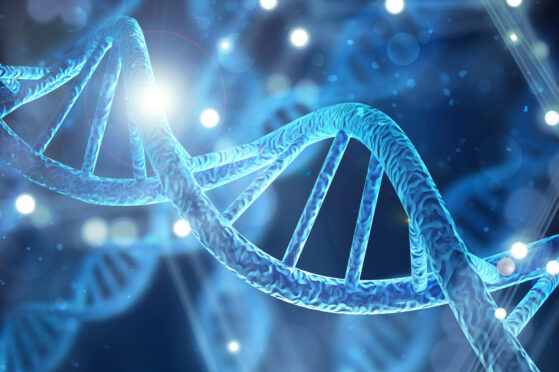
Scientists and ethics experts have urged caution for people using ancestry websites, warning of the unintended consequences of tracing your family’s DNA.
The rise in cheap and extremely accurate DNA testing is fuelling a boom in ancestry tracing sites, allowing people to find long-lost family members, have happy reunions and build important and meaningful new relationships.
But some customers could be unwittingly opening the lid on family secrets that their parents and grandparents took to the grave. In some cases unsuspecting customers discover that they are not genetically related to the person they believed to be their biological parent.
Dr Calum MacKellar, director of research at the Scottish Council on Human Bioethics, told The Post that people who sign up to these websites should be aware that the results might not always be positive. He has also called on DNA kit companies to ensure users are giving informed consent when using their products.
He said: “Someone taking the test might find out a surprise about their family history that is very psychologically troubling to them. They can also be told by these companies that they have certain genes that could result in serious life-threatening disorders.
“Some people don’t want to know these things and have a right not to know. Also, they may have family members who do not want to know, and who did not consent to sending off their DNA or finding out these results.
“When you give your DNA to genetic companies to sequence, you are also automatically handing over biological information about your relatives too, and yet you likely did not ask their permission before sending your DNA off.
“In my work in medical ethics, one of the most important things is the whole concept of informed consent. You inform people about what the risks are, and give them all of the information, and then they can make a decision from that and decide if they want to go forward or not. It really has to be clear, up front, and thought through.”
The craze for DNA testing kits have skyrocketed over the past few years. Two of the largest companies, 23andMe and Ancestry, are estimated to be worth £2.7 billion and £3.7 billion respectively, with each boasting tens of millions of customers worldwide.
For as little as £35 customers can send off a mouth swab which is sequenced and uploaded to their website, allowing them to log in and see any DNA matches with other users of the service. Users can then privately message each other and share more of their personal family history.
While people use the sites to track down living blood relatives to find out more about their immediate past, they are mostly used to find out where long-dead ancestors hailed from.
Handing over your DNA to faraway companies for a rough estimation of where your ancestors came from is not the fairest of trade-offs, according to MacKellar.
He said: “This information could be stored for literally hundreds of years, and who knows how it will be used then? Let’s say a dictatorship arose in 200 years’ time, and this information was used by a government or a police force to find a dissenter who is a distant relative of yours, who is working in opposition to the government during an unfair time. We have no idea of how it will be used in the future.”
This might sound far-fetched, but there is modern precedent. In 2001, a Scottish man, Stephen Kelly, was convicted of culpable and reckless behaviour when he knowingly had unprotected sex with his girlfriend without informing her that he was HIV positive.
In 1997, he had taken part in a HIV medical trial while in prison, and was promised his participation would be anonymous.
Yet only a few years later the police attained a warrant that allowed them access to his medical data from the study.
Many members of the medical community thought this was a shocking breach of privacy, and a warning about how the most personal of our data can be used against us in the future. Sarah Chan, Reader in Bioethics at the Usher Institute for Population Health Sciences and Informatics, is more optimistic about the medical advancements that could be at hand if scientists had access to the same amount of DNA sequencing data as ancestry websites.
She said: “Where this information is really powerful is not on an individual level, but at a population level. That’s where genetic testing is opening up really important and exciting research discoveries, and where the potential health benefits lie.
“What is interesting about these tests is how much stock people place into knowing their genetic heritage – perhaps too much stock. Of course, genetics determine some very important things about us, like how we look, or our state of health. But genetics are not all there is to us, we are more than our genes.”
Dr Julia Dabrowski, who runs the London based Clinical Psychology service Bloom Psychology, said: “It’s really important to consider all the possible outcomes of a search like that, both in terms of the response that they may receive. It might cause you to be left with more questions than answers.”

Enjoy the convenience of having The Sunday Post delivered as a digital ePaper straight to your smartphone, tablet or computer.
Subscribe for only £5.49 a month and enjoy all the benefits of the printed paper as a digital replica.
Subscribe